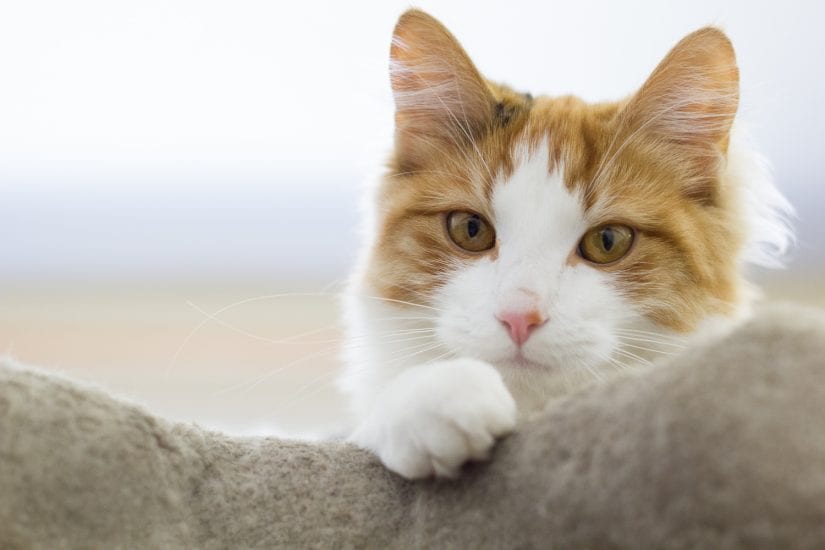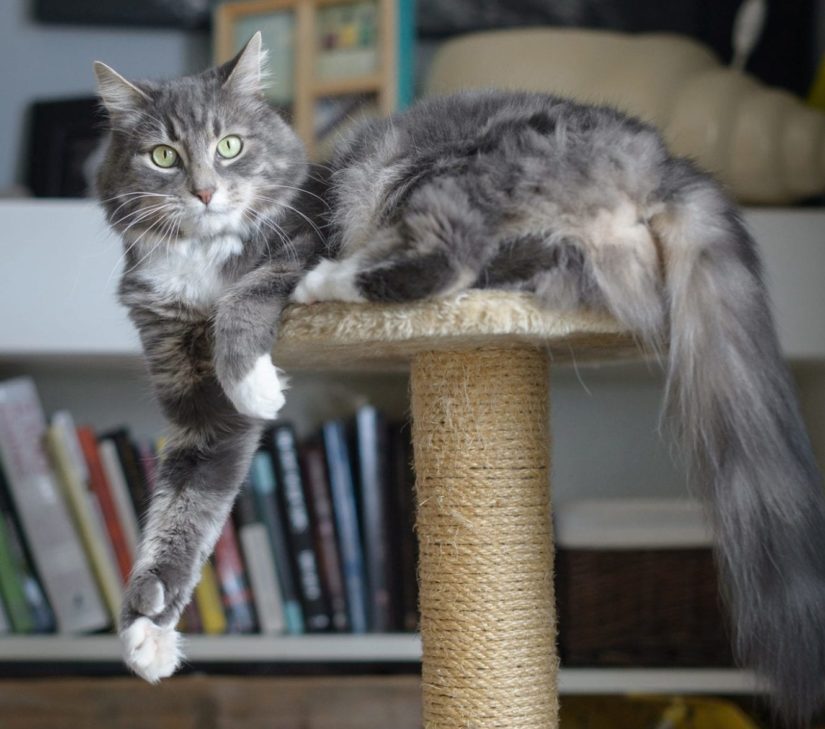Update: In November 2023, veterinarians across the province voted overwhelmingly in favour of including the ban on feline declawing in the bylaws that govern their work. Previously, declawing had only been banned as a standard of practice. Being written into the bylaws ensures a stronger and more lasting change.
The ban on feline declawing joins bylaw bans on tail docking, ear cropping and devocalization in dogs.

Original story: May 8, 2018
The BC SPCA applauds the College of Veterinarians of British Columbia (CVBC) on the implementation of a new mandatory standard of practice to ban the practice of declawing cats unless it is necessary as an appropriate medical therapy.
“For nearly two decades, the BC SPCA has been on record opposing procedures such as declawing, tail docking, ear cropping, and devocalization that impact an animal’s ability to experience good welfare and to express natural behaviours,” says Dr. Emilia Gordon, senior manager of animal health for the BC SPCA.
In their update, the College has said:
The new mandatory standard of practice is being implemented after researching other jurisdictions and consultation with BC veterinarians. Although Nova Scotia is the only other Canadian province to ban cat declawing, it is also banned in Australia, New Zealand, Israel, Brazil, the United Kingdom, parts of Europe and some cities in California.
Under the Veterinarians Act, the CVBC has the power to investigate and impose disciplinary action on veterinarians who ignore the new standard of practice. The Act allows disciplinary enforcement of non-compliance with bylaws and mandatory standards of practice, without distinction (ss. 52 and 61). CVBC Council passed a motion on May 4, 2018 making the mandatory standard effective as soon as registrants receive notification.

